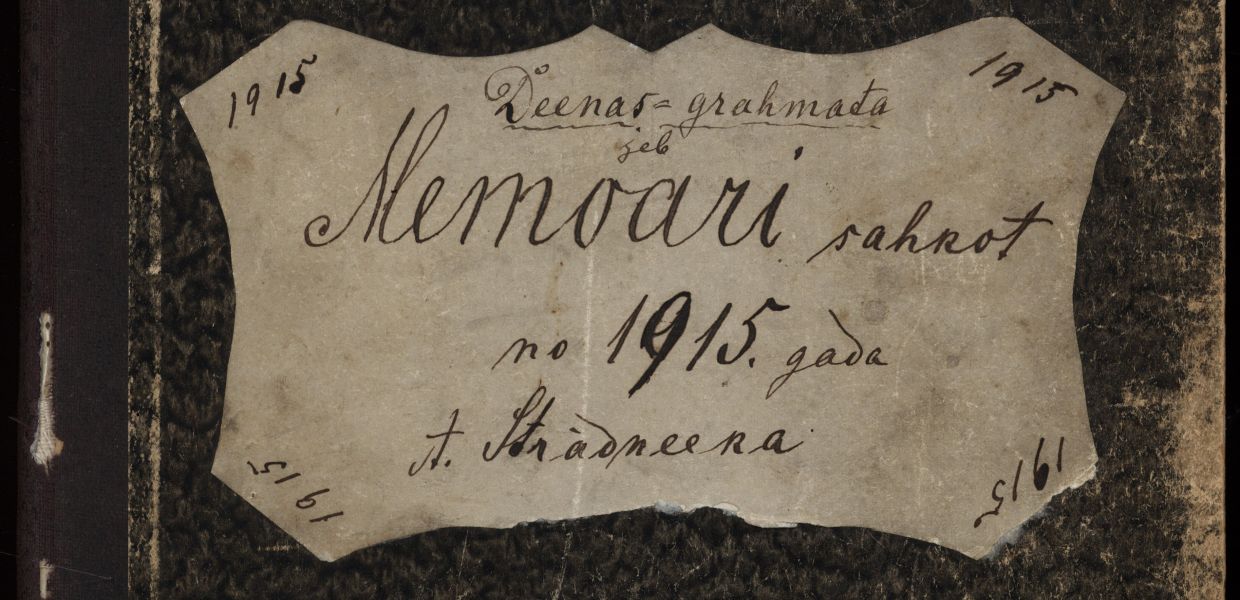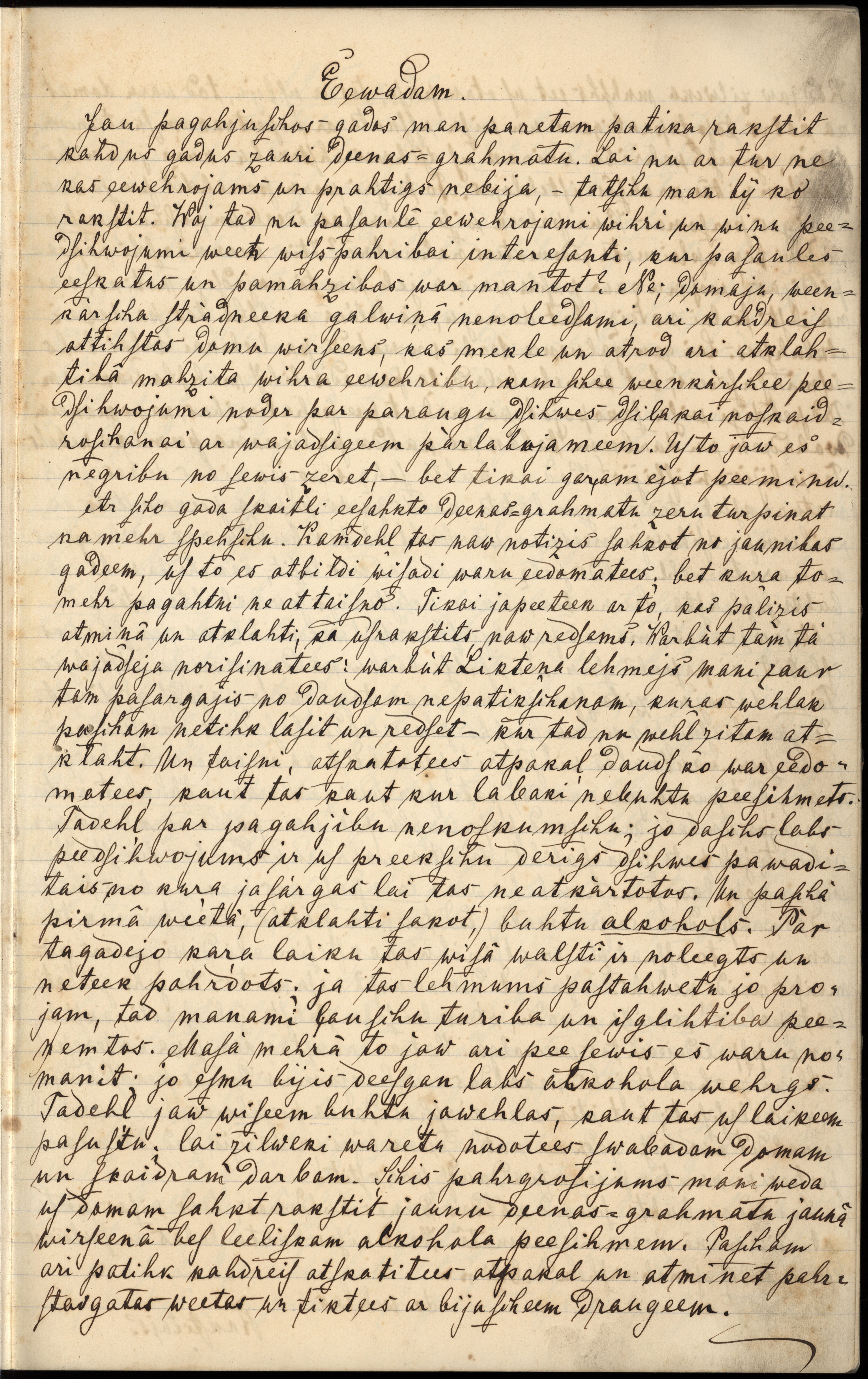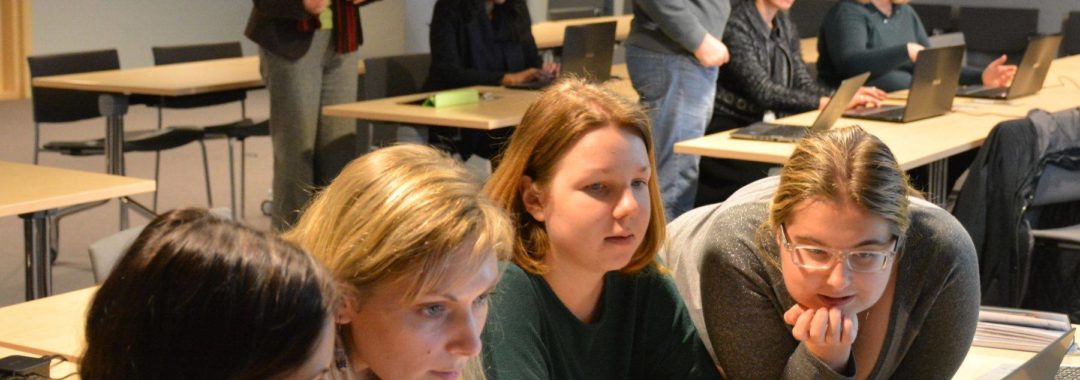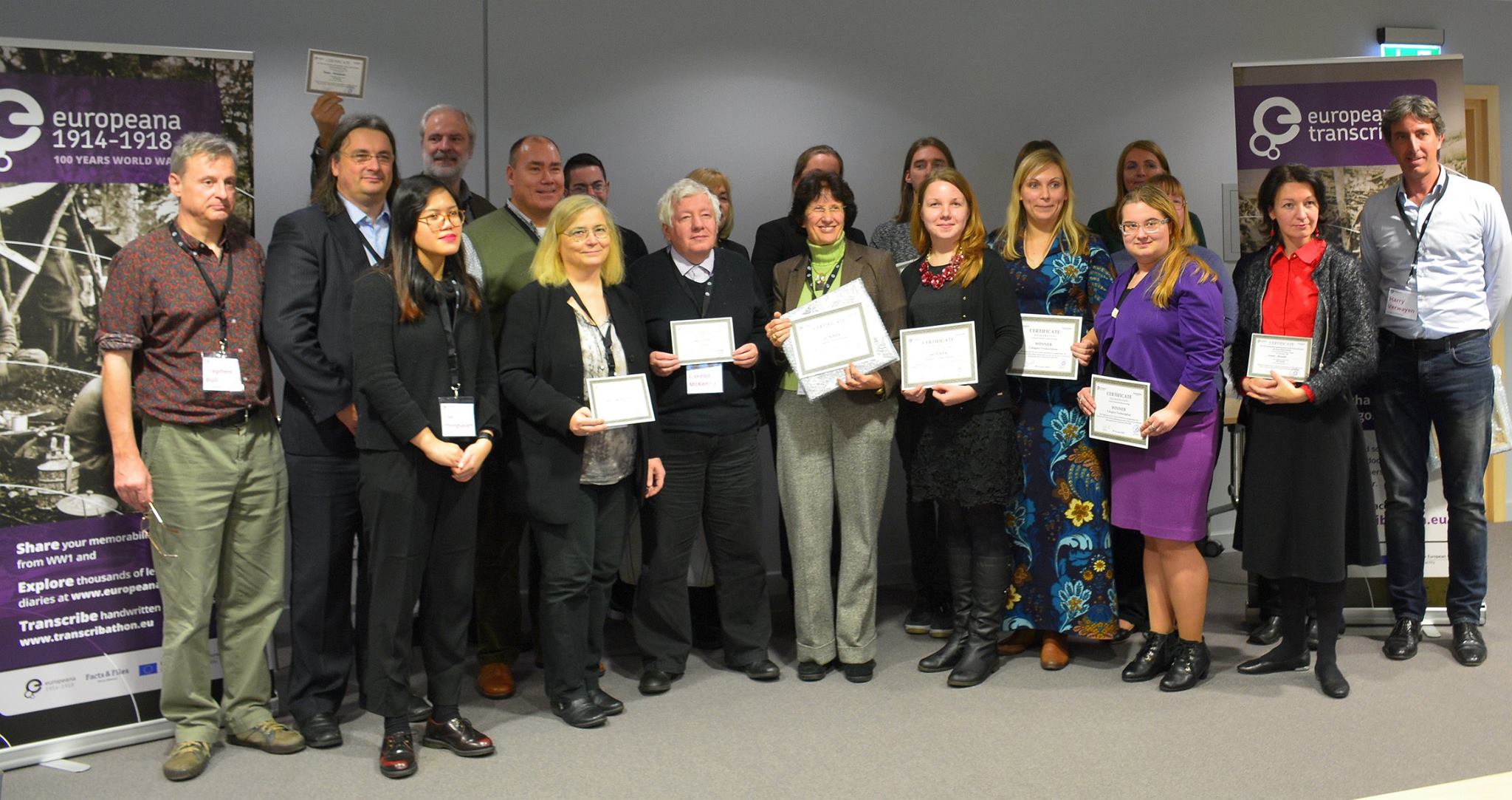Can you read what they wrote during the First World War?

A new Europeana crowdsource campaign will help disclose unique testimonies from the First World War. Early November three history students from the University of Latvia could be found, somewhere in snow covered Riga, feverishly typing away on their laptops. They were not writing their thesis, involved in study research, or even on Facebook. As it happened, they found themselves completely submerged in the world of Ansis Stradnieks who lived 100 years ago. They were transcribing the diary that Stradnieks kept from 1915 to 1917 about his daily life in the Latvian town Kurzeme, then occupied by the German army.

 Cover and page from Ansis Stradnieks’ diary CC BY-SA, The Latvian War Museum
Cover and page from Ansis Stradnieks’ diary CC BY-SA, The Latvian War Museum
The three students, Anna-Anita Cirule, Vineta Blitsone and Anastasija Smirnova, participated as a team in the first International Transcribathon that took place from 7-9 November 2016 at the Latvian National Library in Riga. The event was held during the course of the 2016 Europeana Network Annual General Meeting (AGM). Nine teams from across Europe put their transcription skills to the test and presented their results to an international jury.
 Team Latvian University: Anna-Anita Cirule, Vineta Blitsone and Anastasija Smirnova, CC BY-SA Europeana Foundation
Team Latvian University: Anna-Anita Cirule, Vineta Blitsone and Anastasija Smirnova, CC BY-SA Europeana Foundation
The teams were given 48 hours each to transcribe a chosen source, and were judged for the transcription’s quality and quantity, as well as their presentations. After careful deliberation, the High Jury, composed of military historian Stephen Bull, Mia Ridge, Digital Curator at the British Library, and Harry Verwayen, Deputy Director of Europeana, awarded prizes to the best teams in the Transcription and Presentation categories.
Team Latvian University was the Winner in the Transcription category. The first prize for Presentation was awarded to ‘Team France’, consisting of Europeana Network members Marie-Véronique Leroi and Elisabeth Freyre, who presented an illuminating insight to the Love Letters (“Correspondance amoureuse”) of Denise Brüller and Pierre Fort.
 Prize winners and jury members of the first International Transcribathon held in Riga, CC BY-SA Europeana Foundation
Prize winners and jury members of the first International Transcribathon held in Riga, CC BY-SA Europeana Foundation
The event in Riga signalled the beginning of Transcribe Europeana 1914-1918 — an online crowdsourcing campaign to unlock important testimonies of the First World War for future generations by transcribing handwritten texts that are otherwise difficult to read and cannot be searched or translated online.
With the help of the professional and dedicated staff from partner institutions from the Europeana Network thousands of manuscripts have been published since 2011. All first-hand accounts of people who experienced the war, unique primary sources in need of being disclosed for research and reuse: hastily scribbled postcards between soldiers and their relatives, And they come from all over Europe: the battle notes from a French officer on the Balkan front; a Romanian sailor’s diary of his years as a prisoner of war in Japan; and letters from a Belgian refugee stuck somewhere in the Netherlands.
Transcribe Europeana 1914-1918 will run as an ongoing online challenge — a ‘Transcribathon’ in which members of the public are invited to take up the challenge at www.transcribathon.eu with digital versions of the handwritten testimonies from WW1’s home and battle fronts in 22 languages. The challenge will run until 2018, the centenary that marked the end of the First World War. The website is now free to use and open to all.
The Transcribathon is ‘run’ by accumulating virtual miles with every word transcribed. Each participant works on the transcription of selected documents, for example, a diary or a letter, in a specific language. A ‘Transcribometer’ charts their progress as they compete against others to move up in the transcribers’ league.
A simple e-tutorial teaches participants how to decipher old and difficult to read handwriting in various languages with an easy-to-use online transcription tool. We hope that the challenge and the tool will help build an international community of contributors of all ages and nationalities who can share their knowledge and experience.
People can take part individually from home or in teams at special Transcribathon events where a jury awards points for quality, quantity and presentation of transcriptions. All future event details will be announced on www.transcribathon.eu and www.europeana1914-1918.eu. The first planned events will be held in Romania and Italy in the first half of 2017.
If you are interested in participating in a campaign, please feel free to contact Ad Pollé via ad.polle@europeana.eu
